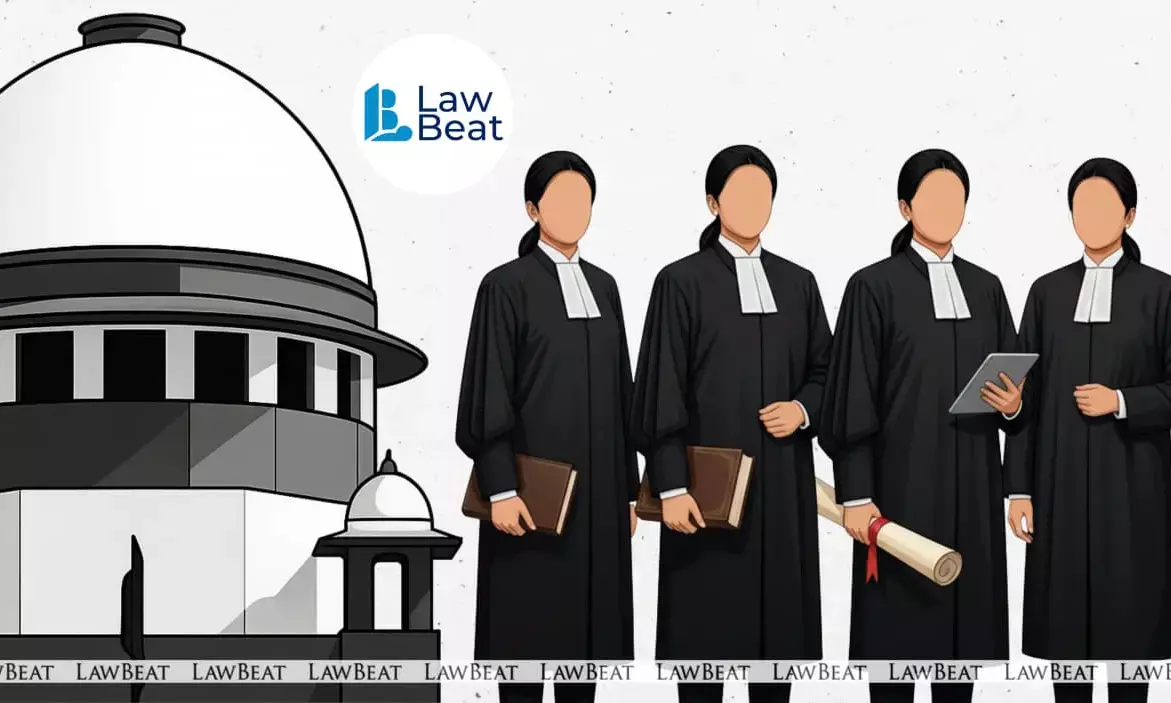Supreme Court issues notice on PIL for inclusion of Women, Queer & SC/ST lawyers in Bar Councils

Bar Council Elections: Supreme Court Modifies December Order to Extend Women’s Representation to Telangana & AP
The Supreme Court today has issued notice in a public interest litigation seeking directions to ensure proportional representation of women, queer persons, persons with disabilities, and lawyers from marginalized communities in the Bar Council of India (BCI) and State Bar Councils. The petitioner, Advocate Yogamaya MG has contended in the PIL that despite the Advocates Act, 1961 being in force for over six decades, there has been no legislative or policy intervention to address the “gross underrepresentation” of women and other marginalized groups in these statutory bodies.
The plea highlights that out of 441 members across all State Bar Councils, only nine are women, underscoring what the petitioner calls a “deeply entrenched imbalance” in the governance of the legal profession. It urges the top court to interpret the term “proportional representation” under Section 3(2)(b) of the Advocates Act, 1961 to include gender, social, and disability-based representation. “The Bar Council plays a pivotal role in regulating the legal profession, yet its composition fails to reflect the diversity of the Bar itself. This is contrary to Articles 14, 15, 16, and 21 of the Constitution,” the petition states, adding that Article 15(3) empowers the State to make special provisions for women and must extend to the legal profession as well.
Further, the petition argues that the existing election process for Bar Councils is “highly politicized and resource-intensive,” discouraging meritorious lawyers, particularly women, from contesting. It seeks regulation of the election process to make it more inclusive and accessible. The petitioner asserts that better representation within Bar Councils would help address long-standing issues such as the lack of women’s toilets, childcare facilities, and effective redressal mechanisms for sexual harassment in court premises.
Notably, an application has also been filed before Supreme Court of India in the PIL seeking a clear and time-bound mechanism for ensuring meaningful and adequate representation of women advocates in the forthcoming State Bar Council elections across all Phases (I–V), including but not limited to reservation, structural safeguards, affirmative measures.
Last weeks, the Supreme Court fixed a revised, five-phase timetable for State Bar Council elections across 16 States and Union Territories, directing that the long-pending polls be completed between January 31 and April 30, 2026. Court had also set up High Powered Election Monitoring Committees (HPEMCs) at regional levels and a pan-India High Powered Supervisory Committee headed by a former Supreme Court judge.
Court in the present application has been told that despite the finalisation of this schedule, no special provisions, safeguards, affirmative measures, or structural mechanisms have been introduced to ensure adequate women’s representation in any of the five phases. The absence of such measures means that the upcoming elections—spread over nearly five months—will likely reproduce the entrenched gender imbalance already prevailing in State Bar Councils, the plea adds.
"...as per the phased election schedule approved by this Hon’ble Court, Phase-I elections for the States of Uttar Pradesh and Telangana must be completed by 31.01.2026. In view of the above, it is essential that the issue of women’s representation in State Bar Councils—which forms the core of both the present Writ Petition and the reliefs sought in W.P.(C) No. 1060/2025—is addressed before the start and conclusion of the Phase-I elections, or else the goal of ensuring fair and equitable representation for women advocates will be lost for the entire upcoming five-year term", the application states.
Filed through Advocate Deepak Prakash, the application seeks application of the principle of “proportional representation” under Sections 3(2)(b) and 3(3) of the Advocates Act, 1961, in a manner consistent with constitutional mandates of equality, non discrimination, and substantive representation of women advocates, to correct the existing gender imbalance in State Bar Council membership.
The Bar Council of India and all State Bar Councils participating in Phases I–V are also sought to be directed to incorporate the above gender-equity measures into their election notifications, rules, and procedures for the 2026 election cycle.
"From its inception in 1961 until 2025, the BCI has not had a single woman elected to its twenty-member body—reflecting a continuous, unbroken 0% female representation for more than six decades. This absolute exclusion at the highest institutional tier not only mirrors but deepens the pervasive underrepresentation already documented across State Bar Councils. The absence of even one elected woman since the very creation of the BCI cannot be dismissed as the outcome of electoral contingencies; it is a direct manifestation of structural barriers embedded in the present electoral architecture", the court has been told.
The continued 0% representation of women in the BCI is stated to constitute a violation of substantive equality, frustrate the constitutional promise of equal access to public institutions, and defeat the mandate to ensure representation in bodies exercising public functions.
Reliance is also placed on the National Gender-Gap Scorecard for State Bar Councils (2025) which reveals an alarming and constitutionally indefensible pattern of exclusion. "Across 18 State Bar Councils comprising 426 elected seats, women occupy only 9 seats—an abysmally low 2.1% representation. In 11 out of 18 Councils, women hold zero seats, signifying their complete exclusion from regulatory and decision-making structures. Except for Bihar, which marginally reaches 8%, every other Council remains confined to the 0–6% range, demonstrating a uniform, nationwide pattern of gender imbalance", the application adds.
The Supreme Court has issued notice on a similar public interest litigation (PIL) seeking reservation for women advocates in State Bar Councils across India, citing their gross under-representation in bar leadership despite rising participation in the legal profession. The petition, filed by Advocate Shehla Chaudhary, was drawn by Advocates Md. Anas Chaudhary and Alia Zaid, and filed through Advocate-on-Record Ansar Ahmad Chaudhary.
Case Title: Yogamaya MG v. Union of India & Ors.
Bench: CJI Surya Kant and Justice Joymalya Bagchi
Hearing Date: November 26, 2025
